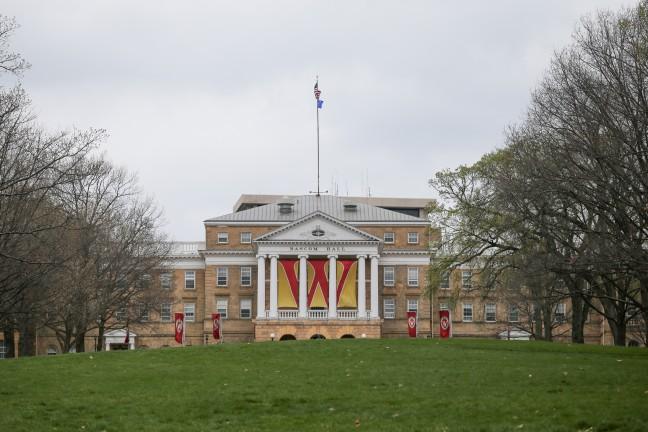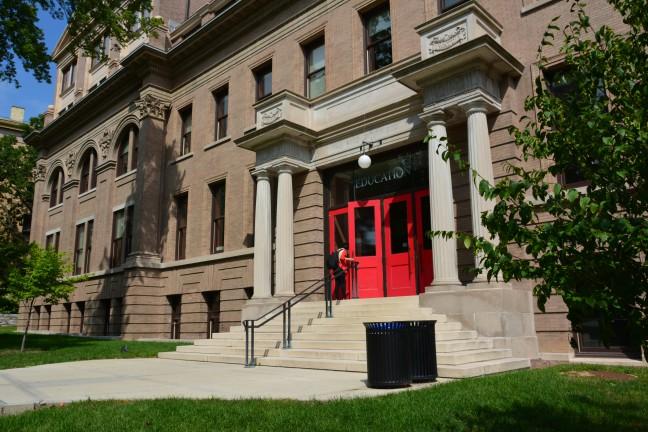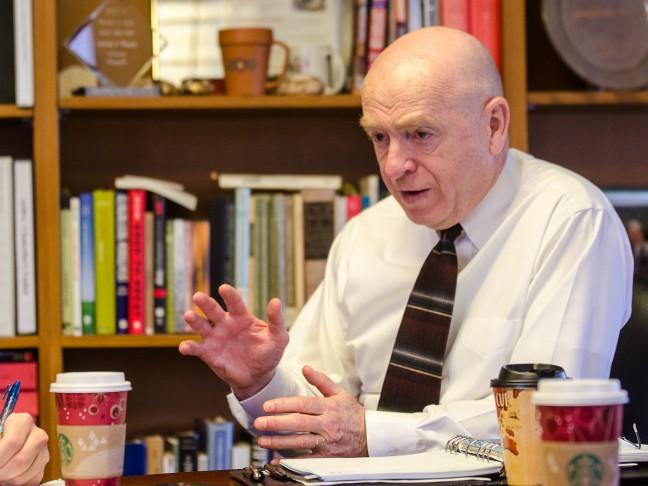During an almost two-hour long heated discussion, lawmakers criticized the University of Wisconsin System and its leadership for a lack of transparency before voting for a historic tuition freeze, more cuts to the System and a recommendation that could hurt a student advocacy group.
In a 14-2 vote, the Legislature’s budget-writing Joint Finance Committee approved a two-year tuition freeze, the first in the System’s history. They also voted to reduce Gov. Scott Walker’s originally proposed funding by $183 million, resulting in a $2.5 million cut to the System.
Walker had reduced his original proposal to $87 million after recent reports showed the System had $648 million in unrestricted cash balance. Of that $648 million, $414 million came from student tuition.
The JFC also approved a motion reducing UW System general program appropriations by $32.8 million during the next two years.
Both Democratic and Republican lawmakers lashed out at the System, including JFC Co-Chair Sen. Alberta Darling, R-River Hills, whom called for UW System President Kevin Reilly’s removal from office, for requesting tuition increases and more flexibility during last biennium’s budget cuts.
JFC Co-Chair Rep. John Nygren, R-Marinette, said students should be upset that tuition has increased during a time of economic hardship, requiring some students to work a second or third job while attending school.
“We were talking about flexibility for the UW System because that was how they were going to be able to overcome the draconian cuts that we were putting on them,” Nygren said. “They sold us a bill of goods, too. They sold the students a bill of goods…and the students are the ones who have to pay. The parents are the ones who have to pay. So we have every right to be upset; they have every right to be upset. But let’s keep the indignation where it belongs. This is the System that made this happen.”
He said legislators gave the System flexibility on faith but found out two years later that “trust was not appropriate” and was not earned. He said it was the obligation of the Legislature to make that opportunity affordable for students.
The committee also voted to keep the UW System’s personal system as part of the state’s personal system until July 1, 2015, a flexibility the UW System advocated. According to a System statement, the budget decisions will weaken the efforts of the System to narrow an 18 percent gap between UW faculty and staff salaries and those of staff at other institutions.
The statement also said that the System will use balances to cover fixed costs, but that permanent funding reductions and the absence of new tuition revenues will lead to a budget shortfall of at least $61 million in the budget starting in 2016.
“We understand the concerns about UW’s cash balances, but we need to consider the long”term implications, and the hole we will face two years from now when revenues will not be there to support our core operations,” Brent Smith, Board of Regents president, said in the statement.
In a statement, Interim Chancellor David Ward said he was disappointed the committee eliminated new funding for the System in the upcoming biennium. He said UW-Madison could cover the expenses but that it will be difficult for it to meet operational obligations in the future.
“We must work together going forward to rebuild the trust between the university and the Legislature, to ensure that our goals and objectives for the university are aligned, and that there is a shared commitment to the level of state investment that will allow the state to maintain a world-class university,” Ward said.
Rep. Cory Mason, D-Milwaukee, said he would not vote on the proposed legislation because it did not provide any new funding for financial aid for students attending System schools. He was joined by Rep. Jon Richards, D-Milwaukee.
He unsuccessfully proposed an amendment to the Legislature’s committee that would have given students more than $40 million in grants during the next biennium from the $648 million in cash reserves.
“And not a single dollar to increase student aid or grants to address tuition. Not a single dollar – not a nickel to make the System more affordable and accessible,” Mason said.
Mason also criticized the proposal for removing mandatory refundable fees that every student pays and funds the United Council of UW Students. He said that removing the clause would “decimate” the lobby’s funding and hurt the voice of students.
Nygren said he believed United Council had not only made a good case for a tuition freeze but a good case for why students should continue to fund them and would not face any problem in gaining student support.
Sen. Glenn Grothman, R-West Bend, said some students are graduating with more than $20,000 in debt with some who are up to $40,000 or $50,000 in debt, adding that it was “one of the scandals of our time.”
“I think it is very important that students are not forced to pay almost a million dollars in fees to this organization,” Grothman said. “It’s a small dent in the student loans people are going to have to pay when they graduate, but at least it’s a start.”
Dylan Jambrek, United Council government relations director, said that deleting the mandatory fee would have a large impact on the organization, especially regarding whether or not it would be able to fund staff positions and provide transportation to legislative hearings.
“This was a complete surprise to us,” Jambrek said. “We have sat in every office of the members of the Joint Committee of Finance, attended every Joint Committee of Finance hearing, and not once did they discuss this with us…it’s a complete disrespect to an organization that has been here since 1968 representing students to never even bring this up as a policy matter and to sneak it in on the last day.”
Jambrek said his organization was pleased with what would be the first two-year tuition freeze in the history of the UW System.
However, he said the rest of the package the Committee passed was a massive cut to the UW System and “a destroying of the student voice.”
“So, what started out the day as probably a relatively good package from the governor ended the day as being absolutely catastrophic for students,” Jambrek said.
During discussion on the bill, both Mason and Grothman said they had originally advocated for a tuition cut.
Mason said his colleagues talked him out of it while Grothman said he partially blamed United Council for not advocating for a tuition cut originally and originally supporting a tuition increase that was less than 5.5 percent.
“One of my biggest disappointments I have with this budget is that I think we should have had a tuition cut,” Grothman said.
The Legislature will vote on the budget in June.
This article was updated with new information as of May 24, 2013 at 5:40 p.m.




















